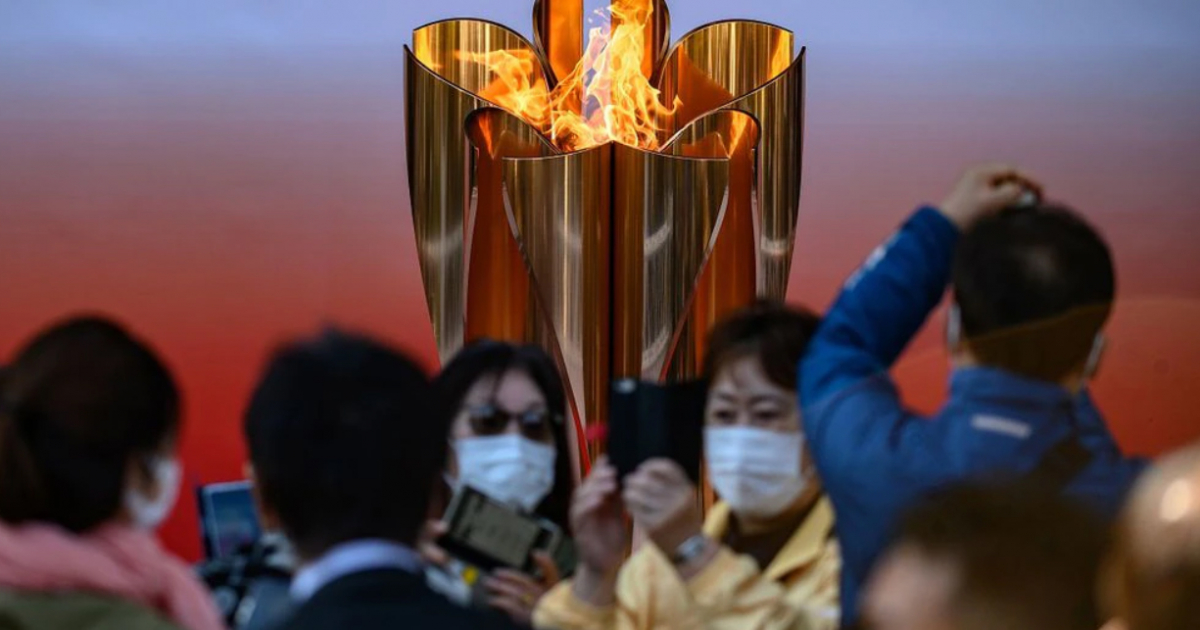
TOKYO (Reuters) - Japan will extinguish its more than a year-old Olympic flame on Sunday, closing a Tokyo Games that was upended by the pandemic and transformed by the drama of politics, dazzling sport and deeply personal turmoil. .
For the host country, the Olympics fell short of the global triumph and financial success it once sought. However, organizers appear to have prevented the Games from becoming a major COVID-19 event, a notable achievement given that some 50,000 people gathered amid the pandemic.
While the bubble – the collection of venues and hotels in which Olympic visitors were largely confined – seemed to be holding up, elsewhere things collapsed. Driven by the Delta variant of the virus, daily infections soared to more than 5,000 for the first time in Tokyo, threatening to overwhelm its hospitals.
Tokyo, usually one of the most dynamic cities in the world, is under a state of emergency, depriving it of the bustle of an Olympic host thronging the city or the fervent crowds of its last Olympic Games in 1964.
Although opinion polls showed that most Japanese opposed the Games, spectators came out in droves, defying authorities and the scorching heat to peer from overpasses as they tried to catch a glimpse of the outdoor events as triathlon or new sports like skateboarding.
Their numbers seemed to be reinforced by the enthusiasm generated by the medal table in Japan.
China led the tally with 38 golds late Saturday, while the United States had 36 and Japan 27. On Sunday, before the closing ceremony, there are 13 golds up for grabs, including the men's marathon gold won by Kenyan Eliud Kipchoge .
Japan will hand over the Olympic baton to the next host city, Paris, in a ceremony that will begin at 1100 GMT.
After a year of delay and often against the backdrop of cavernous, nearly empty venues, the Games themselves provided plenty of drama.
COLD WAR AND "TWISTIES"
The drama culminated in the defection of Belarusian sprinter Krystsina Tsimanouskaya who, in a moment more reminiscent of the Cold War, refused to board a flight home after being taken to the airport against her will.
She has since applied for refugee status in Poland.
American gymnast Simone Biles shocked the world when she withdrew from five of her six events, including suddenly abandoning the women's team final after attempting a single vault, citing concerns for her mental and physical health.
The 24-year-old athlete spoke candidly about struggling to deal with the weight of expectations placed on her and made the world aware of "twisties," a type of mental block that prevents gymnasts from performing their challenging skills. the gravity.
Biles ultimately returned to win bronze on the balance beam in the final event of the women's gymnastics program, a moment of triumph that crystallized her transformation from Olympic champion to mental health advocate.
In athletics, Italy delivered a different impact with its incredible streak. His victories included an impressive gold in the men's sprint relay, bringing the number of golds in athletics to five.
In swimming, the United States was without 23-time Olympic gold medalist Michael Phelps for the first time since the Atlanta Games in 1996, and although his number of golds fell, he finished atop the medal table with a total of 30 .
But they were closely pushed by the Australian team who achieved the best haul in their history with nine golds and 21 medals in total, eight of which were won by the women's team.
At the end of the Games, Japan will have to do the math. The bill for the Olympic and Paralympic Games is expected to be 22% more than it was before they were delayed in 2020, and double what Tokyo submitted in its bid.
The bill, which will have to be paid in full after the Games end, will most likely be picked up by the Tokyo government and the central government.
(Edited in Spanish by Carlos Calvo Pacheco)
What do you think?
COMMENTFiled in: